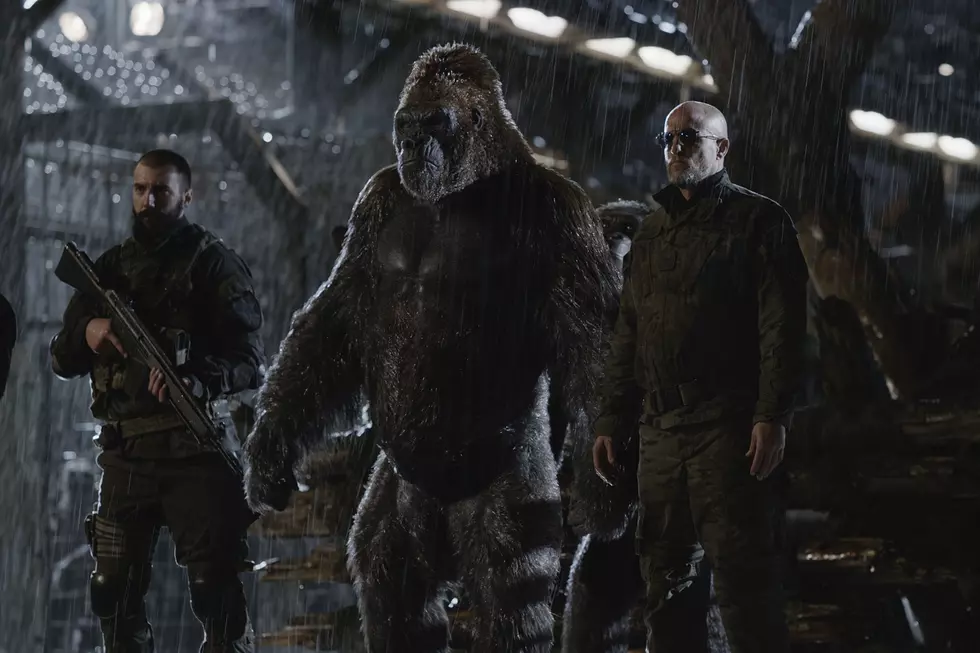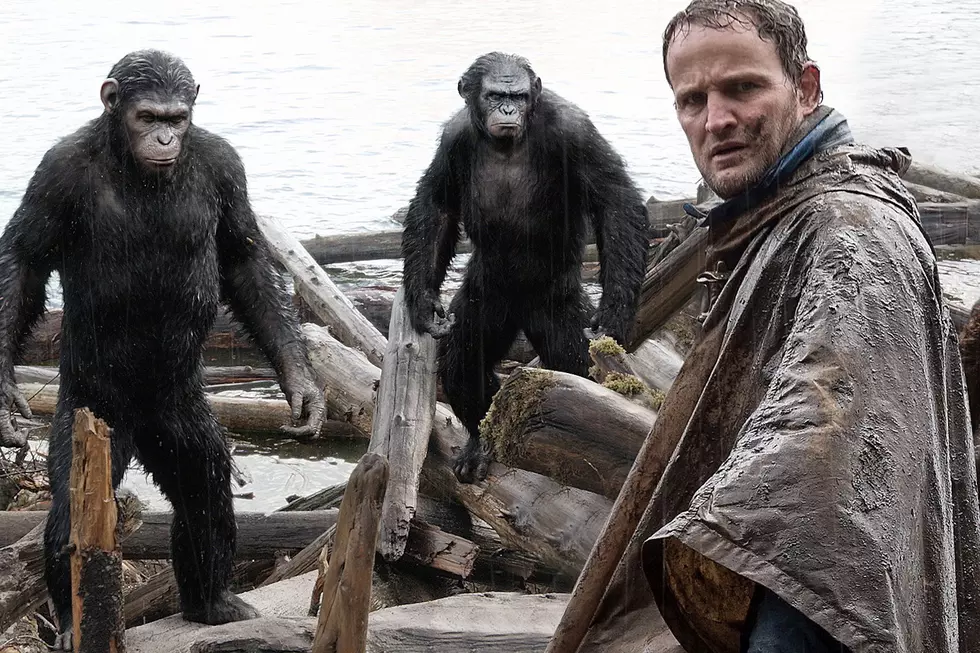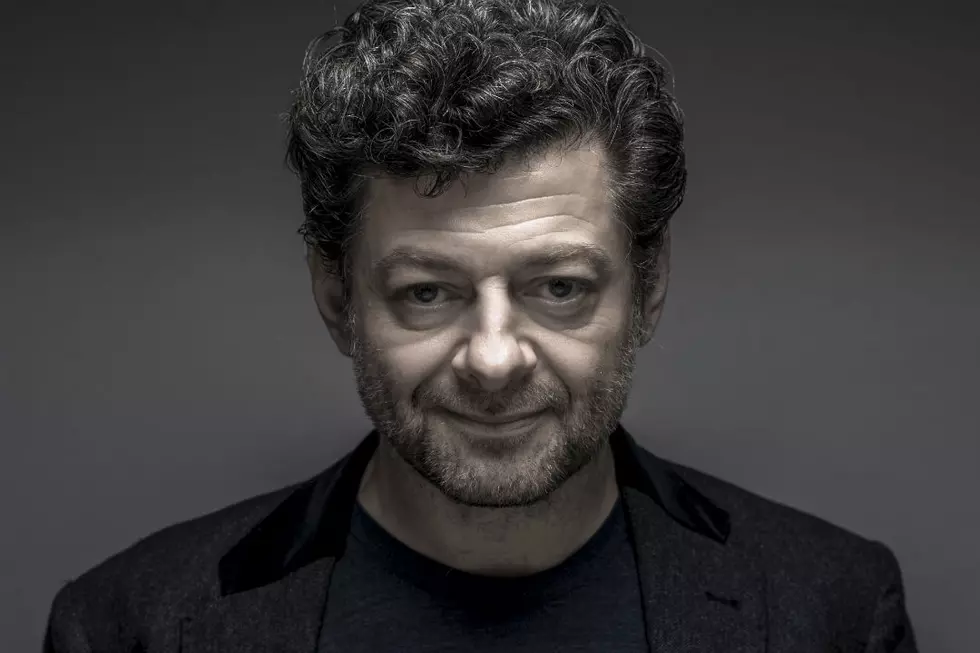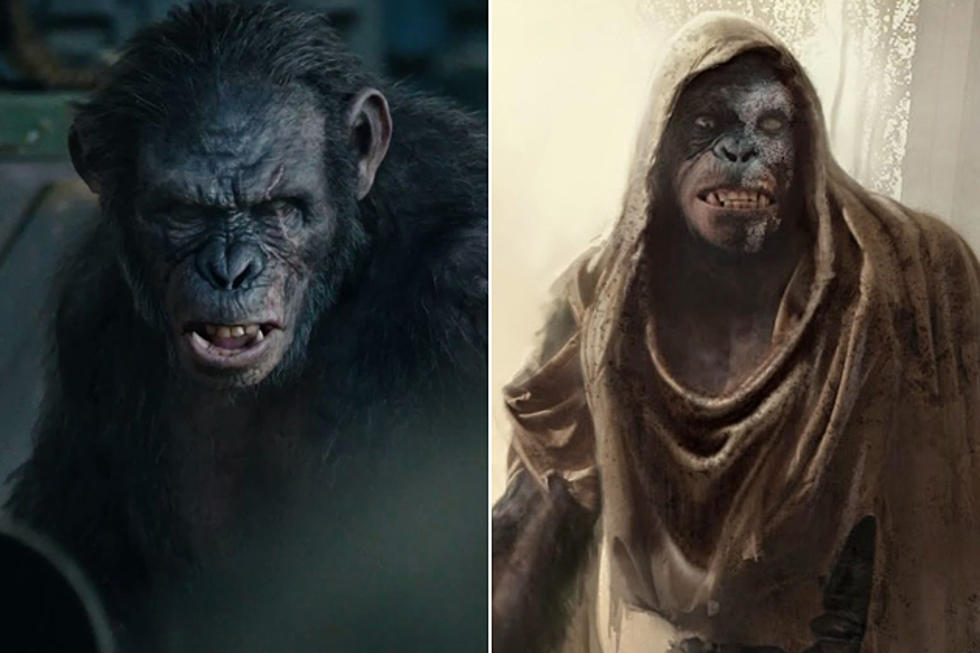
‘War for the Planet of the Apes’ Review: Apes. Finale. Strong.
There is a sinister circular logic to the Planet of the Apes series. Characters journey to the stars and wind up … back on Earth. They travel back in time … and directly cause the events that lead to the rise of their dystopian future. Even as War for the Planet of the Apes concludes the story of the ape leader Caesar, it brings the franchise’s overarching narrative closer and closer to its origins on a desolate, sun-swept beach, one that looks a lot like the one Caesar and his monkey mates gallop across during their quest for revenge. That’s what makes these movies so troubling. It’s not the monkeys with machine guns or the gorillas with grenade launchers; it’s the sense that collapse is inevitable, that even when people (and apes) act with the best of intentions, they can’t escape the cruel hand (or paw) fate has dealt.
Take Caesar (played, via Hall of Fame-level motion capture special effects by actor Andy Serkis and the team at Weta). About 20 years after the fall of human civilization, he and his tribe of apes just want to live in peace. Some years earlier (in the previous film, 2014’s Dawn of the Planet of the Apes), an ape traitor named Koba deliberately provoked a battle between Caesar’s forces and his allies among humanity’s survivors (because, again, conflict in these movies is as brutal as it is unavoidable). Now, the remains of the U.S. military - who call themselves the Alpha and the Omega, another direct allusion to the series’ cyclical structure - hunt for Caesar’s hidden forest fortress. When they find it, the Alpha and the Omega’s leader (Woody Harrelson) commits an act of true savagery, leading Caesar to abandon his command in pursuit of personal vengeance.
At night, Caesar is haunted by dreams of Koba. Despite his attempts to live a calm, quiet life, he becomes consumed with thoughts of killing Harrelson’s Colonel. It’s all he cares about. He can’t forgive the Colonel for what he’s done, which is exactly why Koba, who had been tortured by humans, betrayed his ape brethren. Can Caesar break the cycle of violence and hatred?
This is a Planet of the Apes movie, perhaps the most soul-crushingly bleak franchise in the history of Hollywood, so maybe don’t expect a happy answer to that question — or a happy ending to Caesar’s story. But War for the Planet of the Apes, directed and co-written by Matt Reeves, offers some fleeting glimpses of hope amidst its bloodshed and brutality. Most of them can be found in the remarkable faces of its ape characters, which have grown so sophisticated that it's sometimes hard to believe they aren't real. Reeves films these characters in long, lingering extreme close-ups, letting us pore over their faces, and study their sad, soulful eyes. Much more often than not, there are no visible seams. (Neither of the previous Planet of the Apes won the Oscar for Best Visual Effects. The Academy needs to rectify that oversight next year.)
There's another member of the crew whose contribution to War for the Planet of the Apes is so outstanding, I paid close attention to the credits to learn their name. It turned out to be an artist I know well; Michael Giacchino, the composer of The Incredibles, Inside Out, and the recent Star Trek reboot. He also wrote the score for Dawn of the Planet of the Apes, but his work on War seems even more grand and epic, even more effective in evoking the emotions of its simian protagonists with unusual instrumentation like tribal drums. This is one of the great recent movie scores.
Serkis is, not surprisingly, amazing, and so is the rest of the cast. Playing against type, Harrelson is understated and terrifying channeling Brando in Apocalypse Now as the ruthless, deranged Colonel. (I like the scene where he surveys his kingdom while carefully shaving his head in order to render his appearance as un-apelike as possible.) And Steve Zahn brings some welcome humor to the role of Bad Ape, a former zoo animal Caesar discovers during his quest.
The film only falters when it tries too hard to reference the old Apes films. Caesar's band eventually grows to include a mute little human girl (Amiah Miller), and Reeves contorts himself into a pretzel to find a reason to name her Nova, a reference to the mute woman Charlton Heston encountered in the first Planet of the Apes. War for the Planet of the Apes is always more effective when it pays homage in less direct ways; reconjuring the old film's cynical worldview and subtext about race and religion. Reeves and co-writer Mark Bomback's final fate for Harrelson's Colonel, for example, is so bitterly ironic it could have sprung from the typewriter of original Apes co-writer Rod Serling.
Serling was a master of deploying genre conventions in service of social commentary, and he was fearless about following stories to tragic endings when circumstances merited them. He made thoughtful entertainment for adults, in other words, and when people complain that nobody makes blockbusters that way anymore, this is precisely what's missing. Not everything in War works; after a nearly perfect first act, some of the awkward plot machinations of the third act are a letdown. Still, this movie takes big risks, and many of them pay off. War for the Planet of the Apes proves that big movies aren’t incompatible with big ideas. That's another way it brings this series full circle.
More From KEAN 105










